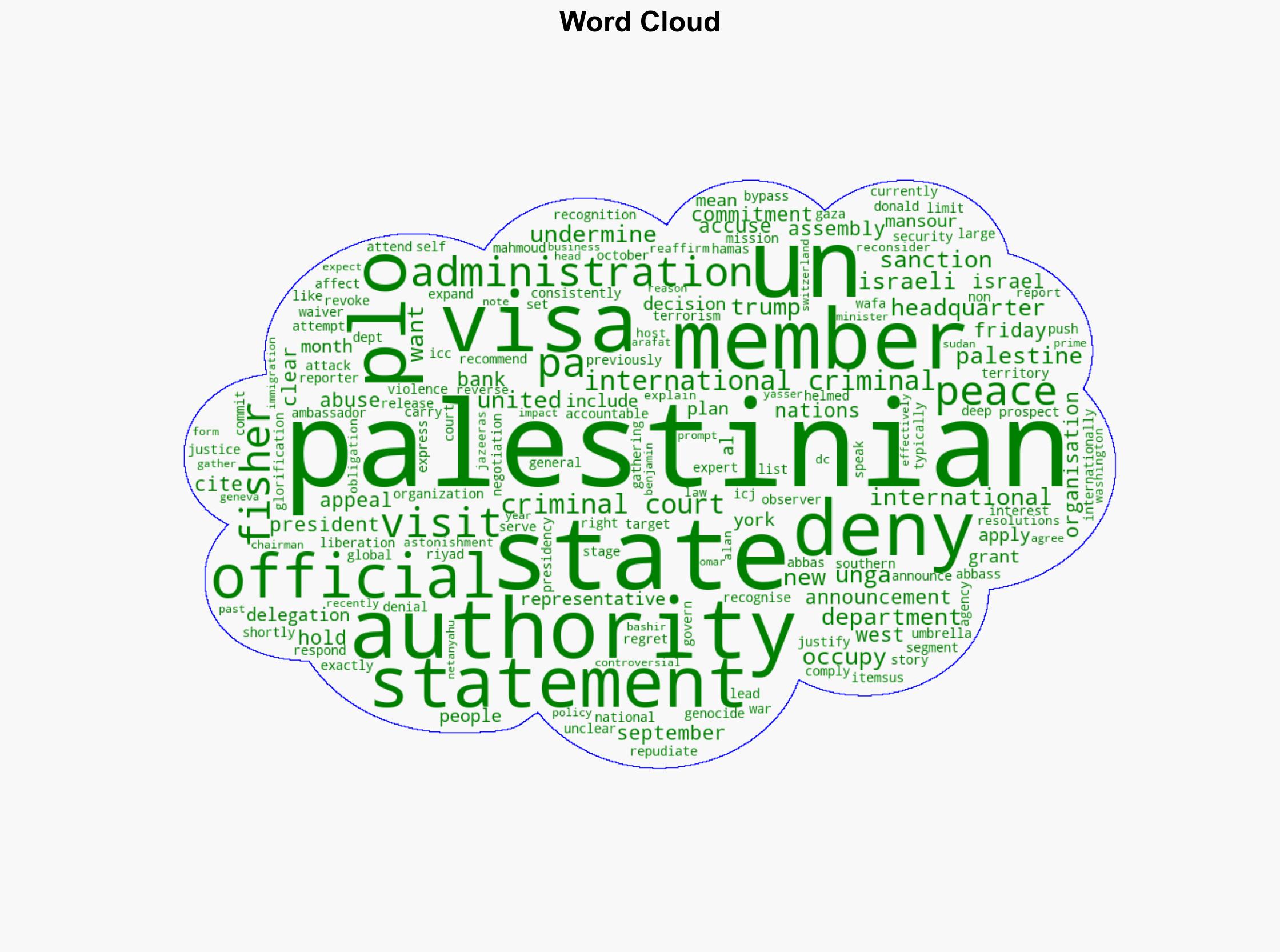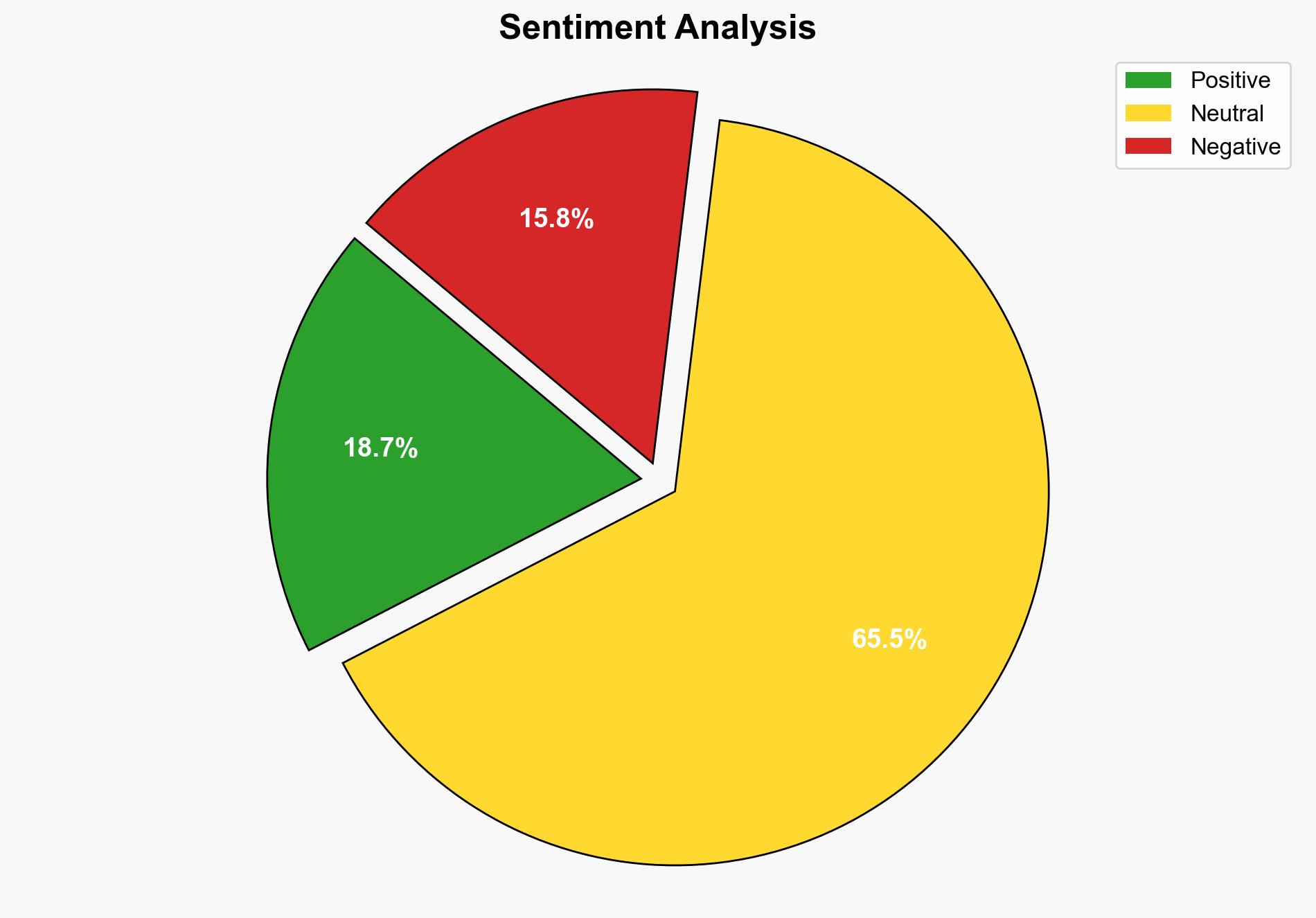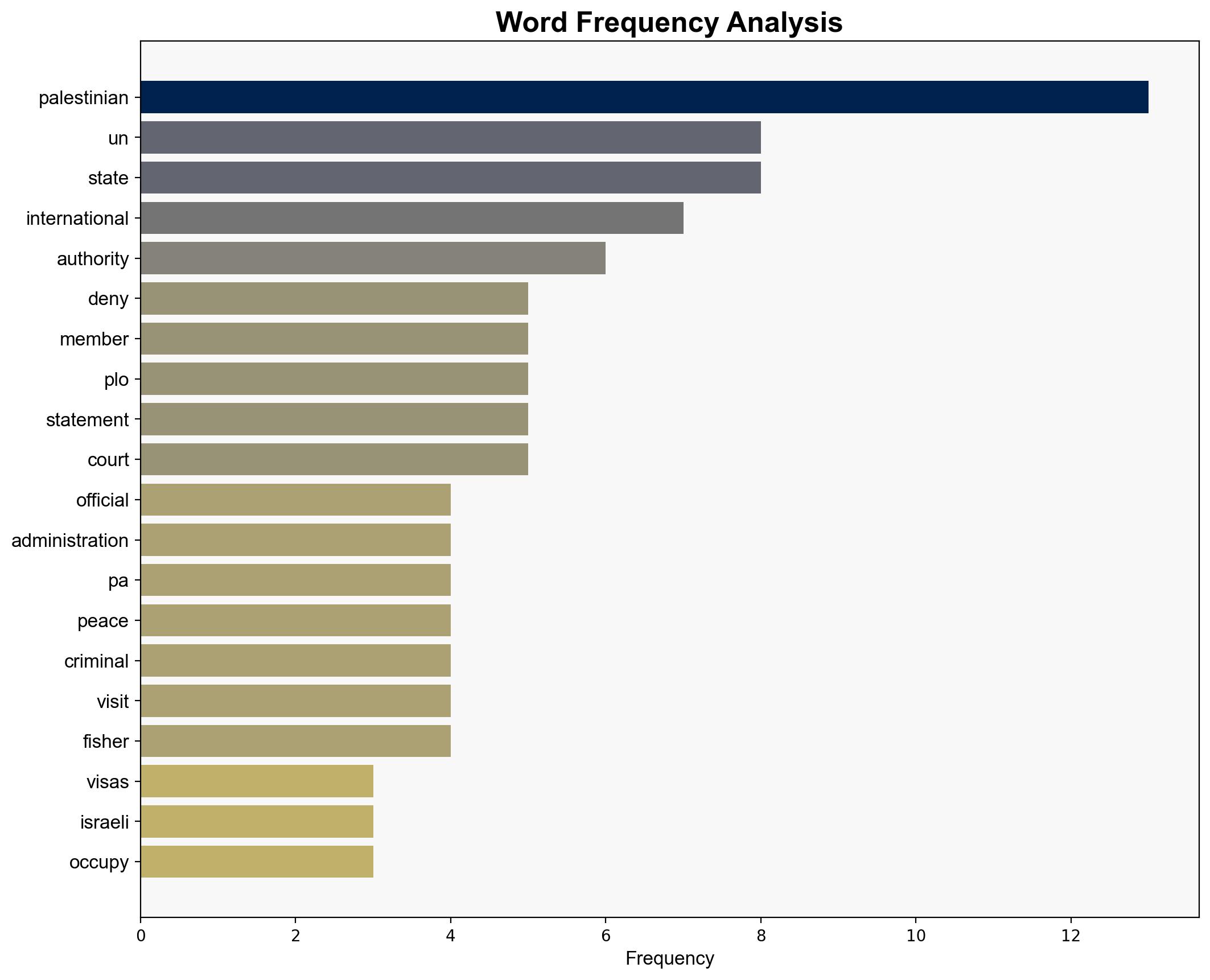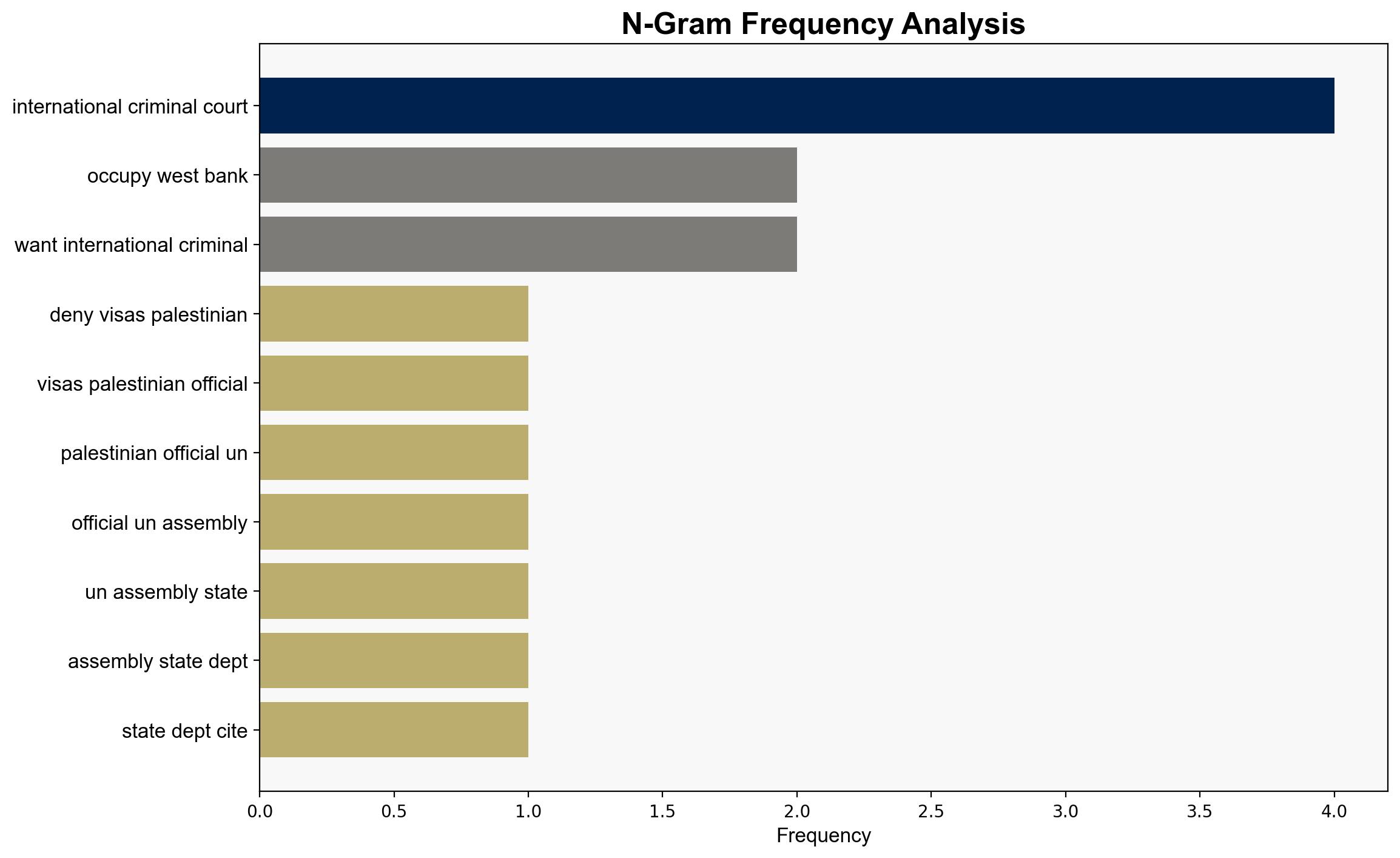US denies visas for Palestinian officials before UN assembly – Al Jazeera English
Published on: 2025-08-29
Intelligence Report: US denies visas for Palestinian officials before UN assembly – Al Jazeera English
1. BLUF (Bottom Line Up Front)
The United States’ decision to deny visas to Palestinian officials before the UN assembly appears to be a strategic move aligned with its broader policy objectives concerning the Israeli-Palestinian conflict. The most supported hypothesis suggests this action is intended to pressure the Palestinian Authority (PA) to engage in direct negotiations with Israel rather than seeking international legal recourse. Confidence level: Moderate. Recommended action: Monitor diplomatic communications for shifts in US-Palestinian relations and potential impacts on regional stability.
2. Competing Hypotheses
1. **Hypothesis A**: The US visa denial is primarily a punitive measure aimed at the Palestinian Authority for its appeals to international courts, which the US views as undermining peace negotiations.
– **Supporting Evidence**: The US State Department’s statement highlights the Palestinian appeal to the ICC and ICJ as justification for the visa denial.
– **SAT Applied**: ACH 2.0 (Analysis of Competing Hypotheses) indicates strong alignment with US policy to discourage international legal actions against Israel.
2. **Hypothesis B**: The visa denial is a broader strategic maneuver to align with Israeli interests and maintain strong bilateral relations with Israel.
– **Supporting Evidence**: Historical precedence of US actions favoring Israeli positions, including previous sanctions on Palestinian entities.
– **SAT Applied**: Bayesian Scenario Modeling suggests a high probability of this hypothesis given the consistent US-Israel alignment in recent years.
3. Key Assumptions and Red Flags
– **Assumptions**:
– The US perceives Palestinian legal actions as a significant threat to peace negotiations.
– The US aims to maintain its role as a mediator in the Israeli-Palestinian conflict.
– **Red Flags**:
– Lack of clarity on how this decision affects Palestinian President Mahmoud Abbas’s plans.
– Potential bias in interpreting US motivations solely through the lens of Israeli interests.
4. Implications and Strategic Risks
– **Geopolitical Risks**: Increased tensions between the US and Palestinian authorities could lead to further diplomatic isolation of the PA.
– **Cascading Threats**: Potential for increased unrest in Palestinian territories if perceived as US bias against Palestinian statehood aspirations.
– **Psychological Impact**: Erosion of trust in US as a neutral mediator could hinder future peace negotiations.
5. Recommendations and Outlook
- Engage in diplomatic dialogue with Palestinian representatives to understand their perspective and mitigate potential backlash.
- Scenario Projections:
– **Best Case**: US and PA resume negotiations, leading to renewed peace talks.
– **Worst Case**: Escalation of tensions resulting in violence in the region.
– **Most Likely**: Continued diplomatic stalemate with periodic escalations.
6. Key Individuals and Entities
– Mahmoud Abbas
– Riyad Mansour
– Benjamin Netanyahu
7. Thematic Tags
national security threats, regional focus, diplomatic relations, international law




